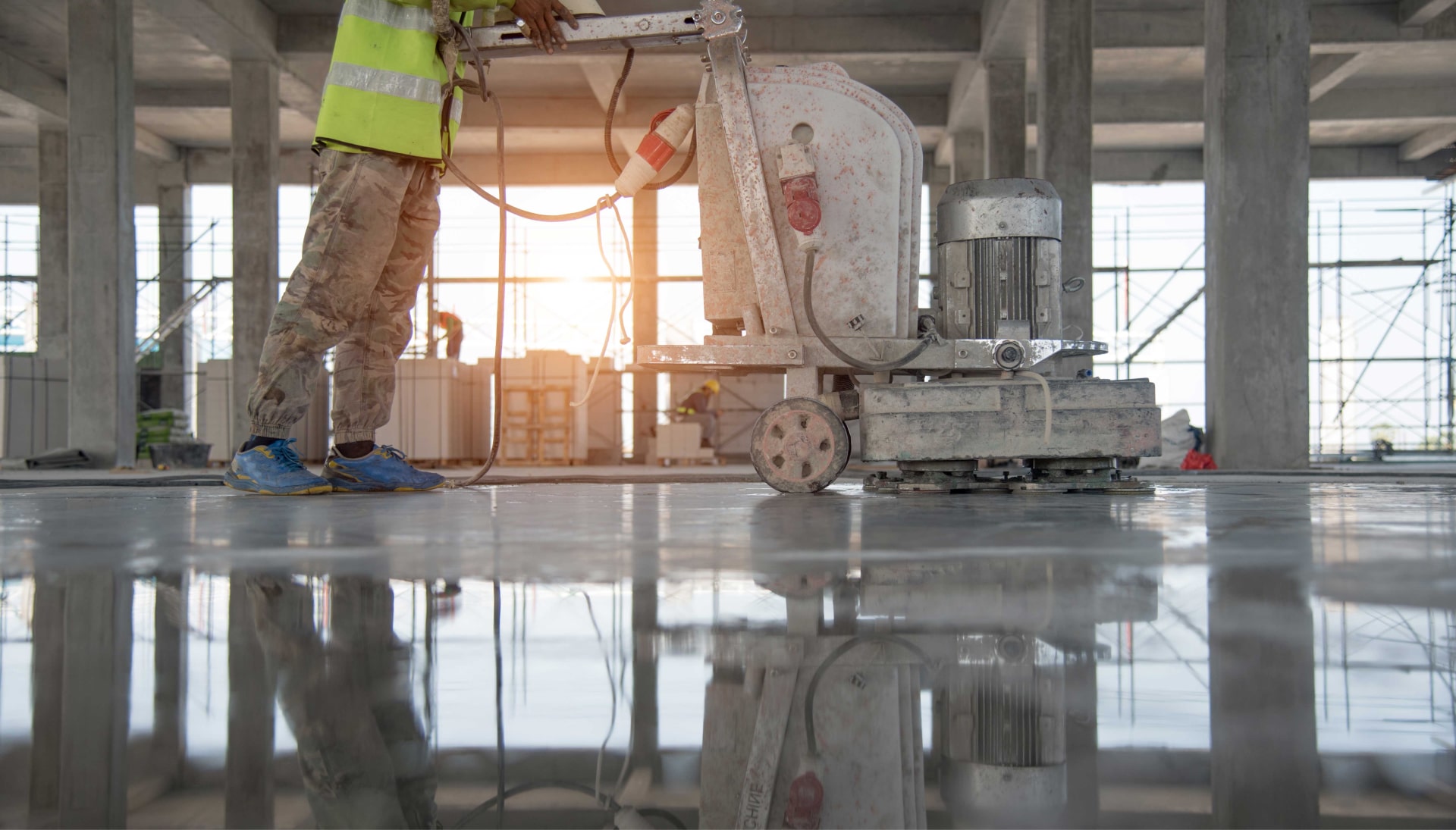Durable Concrete Solutions for Your Property
When it comes to enhancing your property with reliable and long-lasting materials, concrete stands out as an exceptional choice. At our core, we provide comprehensive Concrete Installation Services tailored to meet the unique demands of your project. We focus on delivering quality and durability, ensuring that every installation meets the highest standards of performance and aesthetic appeal.
Why Choose Concrete?
Concrete’s inherent strength and versatility make it suitable for a wide array of applications, from foundational structures to decorative elements. Unlike many other building materials, concrete offers superior resistance to weathering, pests, and fire, reducing long-term maintenance costs and enhancing safety. Investing in professional Concrete Installation Services ensures these benefits are fully realized through expert application and meticulous attention to detail.
Our Expertise in Concrete Installation
Our team specializes in various types of Concrete Installation Services, each designed to enhance different aspects of your property:
- Driveways and Walkways: Create welcoming entrances and pathways with expertly installed concrete that withstands heavy use and weather exposure.
- Patios and Outdoor Living Spaces: Extend your living space outdoors with durable and attractive concrete patios, perfect for entertaining or relaxing.
- Foundations and Structural Concrete: Ensure the stability and longevity of your buildings with solid concrete foundations that meet all safety and regulatory standards.
- Decorative Concrete: Add a touch of elegance with stamped, stained, or polished concrete, transforming ordinary surfaces into works of art.
The Installation Process
Our approach to Concrete Installation Services is thorough and customer-focused. We begin with a detailed consultation to understand your specific needs and preferences. From there, we manage every step of the process, including site preparation, formwork, pouring, finishing, and curing. This comprehensive service ensures that every project is completed efficiently, on time, and to your complete satisfaction.
Commitment to Quality and Satisfaction
We are dedicated to providing exceptional Concrete Installation Services that not only meet but exceed your expectations. Our commitment to using high-quality materials and employing skilled professionals guarantees a result that is both beautiful and built to last. Trust us to deliver concrete solutions that enhance the value and appeal of your property for years to come.
Services
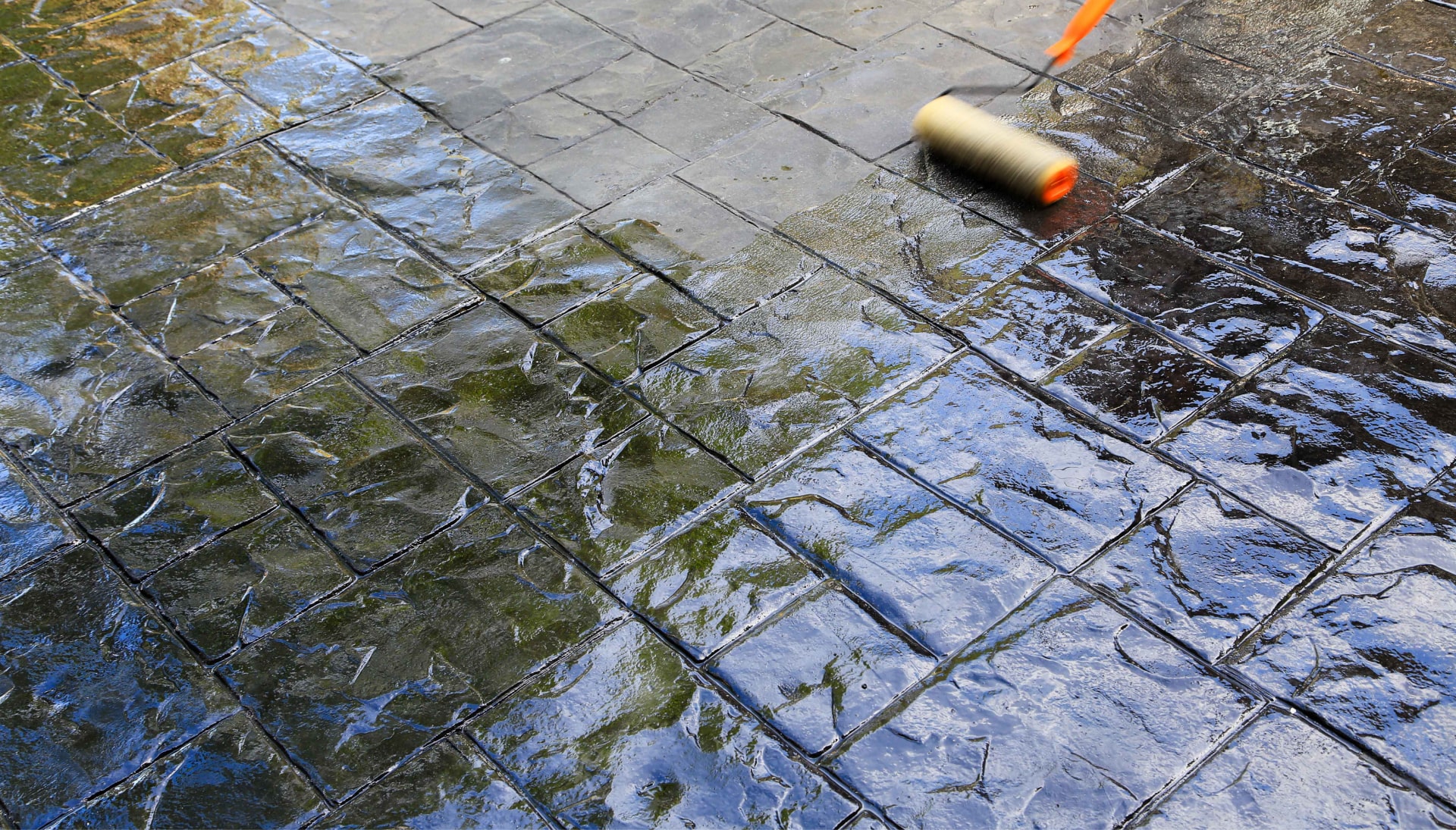
Concrete Patios in Knoxville
Improve the visual appeal of your commercial or residential outdoor space with a beautiful concrete patio designed by our partners.
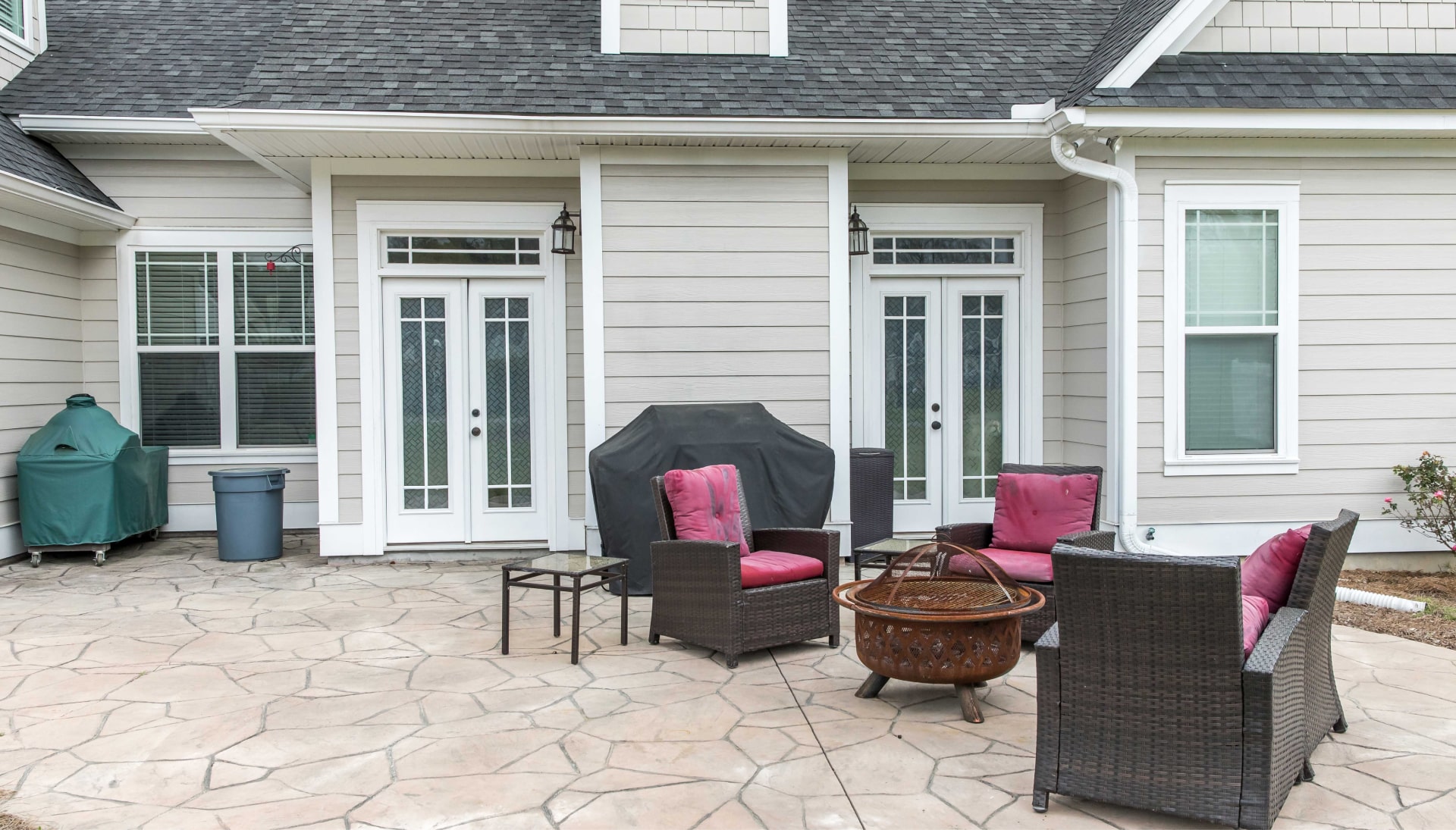
Beautiful Stamped Concrete of Knoxville
Go with the standard concrete look or get creative with one of the many gorgeous designs in decorative concrete that Knoxville, Tennessee locals are loving.
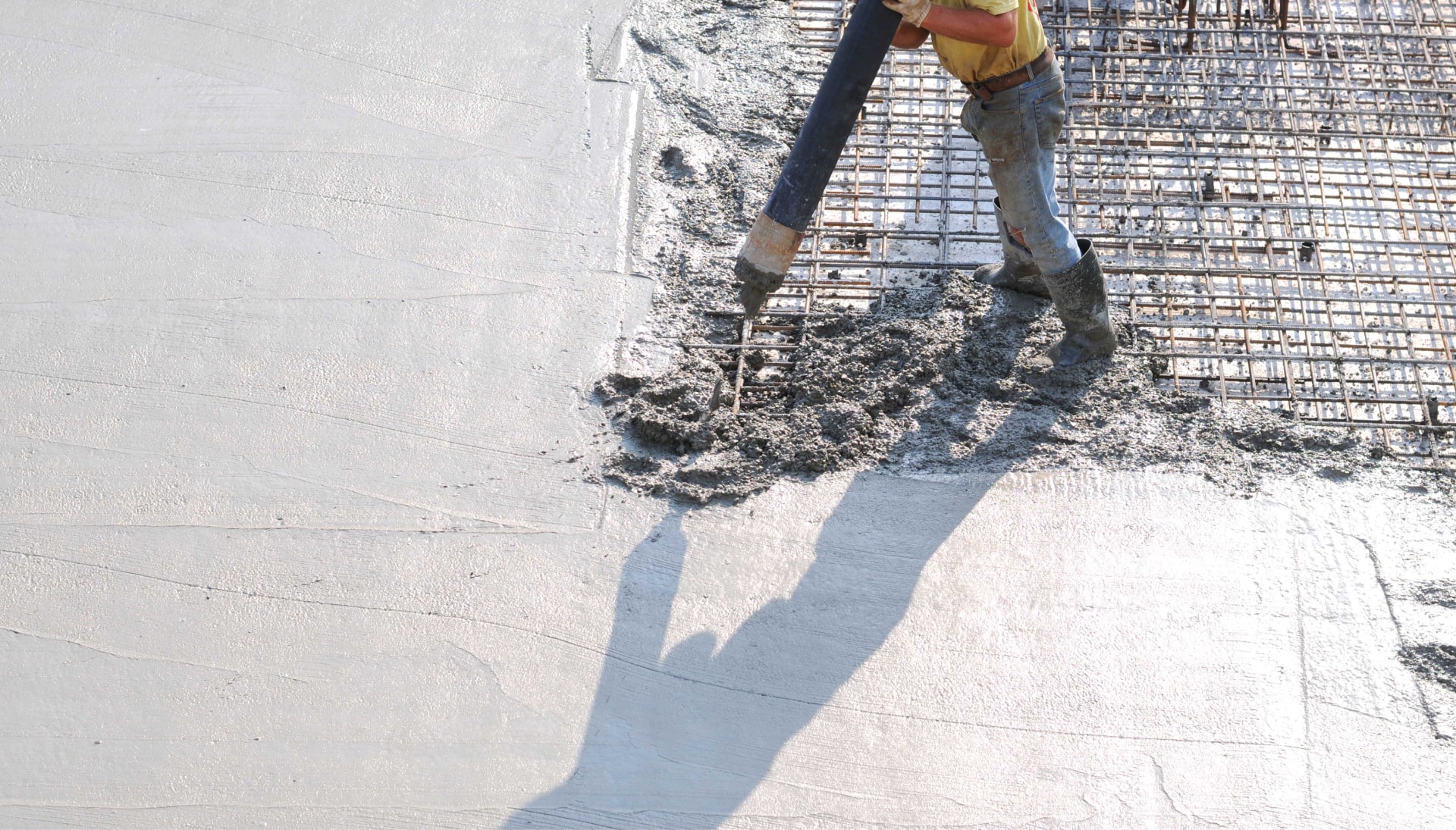
Foundation Repair in Knoxville, Tennessee
No concrete repair project is too big or too small for us. We’ve got you covered whether you need concrete driveway repair, concrete foundation repair, or any other kind of concrete repair in Knoxville.
Why choose Concrete Knoxville for your Knoxville concrete needs
The Enduring Appeal of Concrete Pools
Concrete pools represent a blend of durability, customization, and timeless design. Unlike prefabricated alternatives, concrete pools are crafted to meet specific aesthetic and functional needs. This adaptability makes them a favored option for homeowners seeking a unique backyard oasis.
Why Choose a Concrete Pool?
- Bespoke Design: Concrete allows for limitless design possibilities, from classic rectangular shapes to freeform lagoons. The ability to tailor the pool’s dimensions, depth, and features ensures it complements your property seamlessly.
- Long-Term Value: Properly constructed and maintained concrete pools can last for decades, often increasing the overall value of your home. Their robust nature withstands the test of time, providing enjoyment for generations.
- Custom Finishes: Select from an array of finishes, including plaster, tile, and exposed aggregates, to achieve the desired look and feel. These finishes not only enhance the pool’s appearance but also contribute to its longevity.
The Construction Process
Building a concrete pool involves a meticulous process, beginning with excavation and the creation of a steel reinforcement framework. Concrete is then applied, forming the pool’s shell. This is followed by the application of the chosen finish and the installation of plumbing and filtration systems. A professional installation ensures structural integrity and optimal performance.
Maintaining Your Concrete Pool
While durable, concrete pools require regular maintenance to preserve their beauty and functionality. This includes balancing the water chemistry, cleaning the pool surface, and inspecting the filtration system. With proper care, your concrete pool will remain a stunning centerpiece of your outdoor living space for years to come.
Exploring Concrete Pool Options
From simple, budget-friendly designs to elaborate, custom creations, concrete pools offer solutions for various tastes and budgets. The initial investment may be higher than other pool types, but the long-term benefits and customizable nature make it a worthwhile consideration. When researching concrete pools, consult with experienced pool builders to explore the options and create a pool that suits your lifestyle and enhances your property.
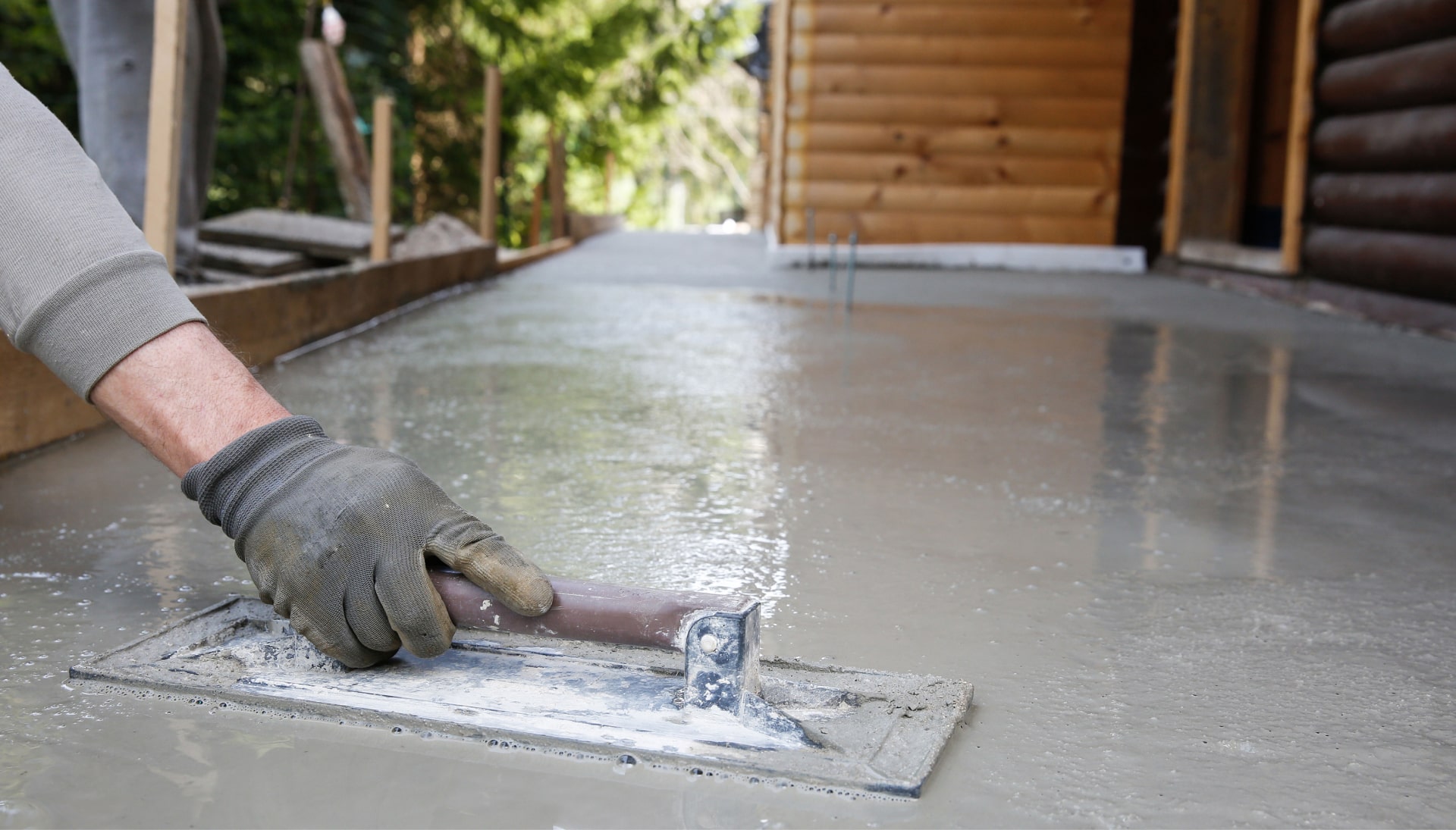
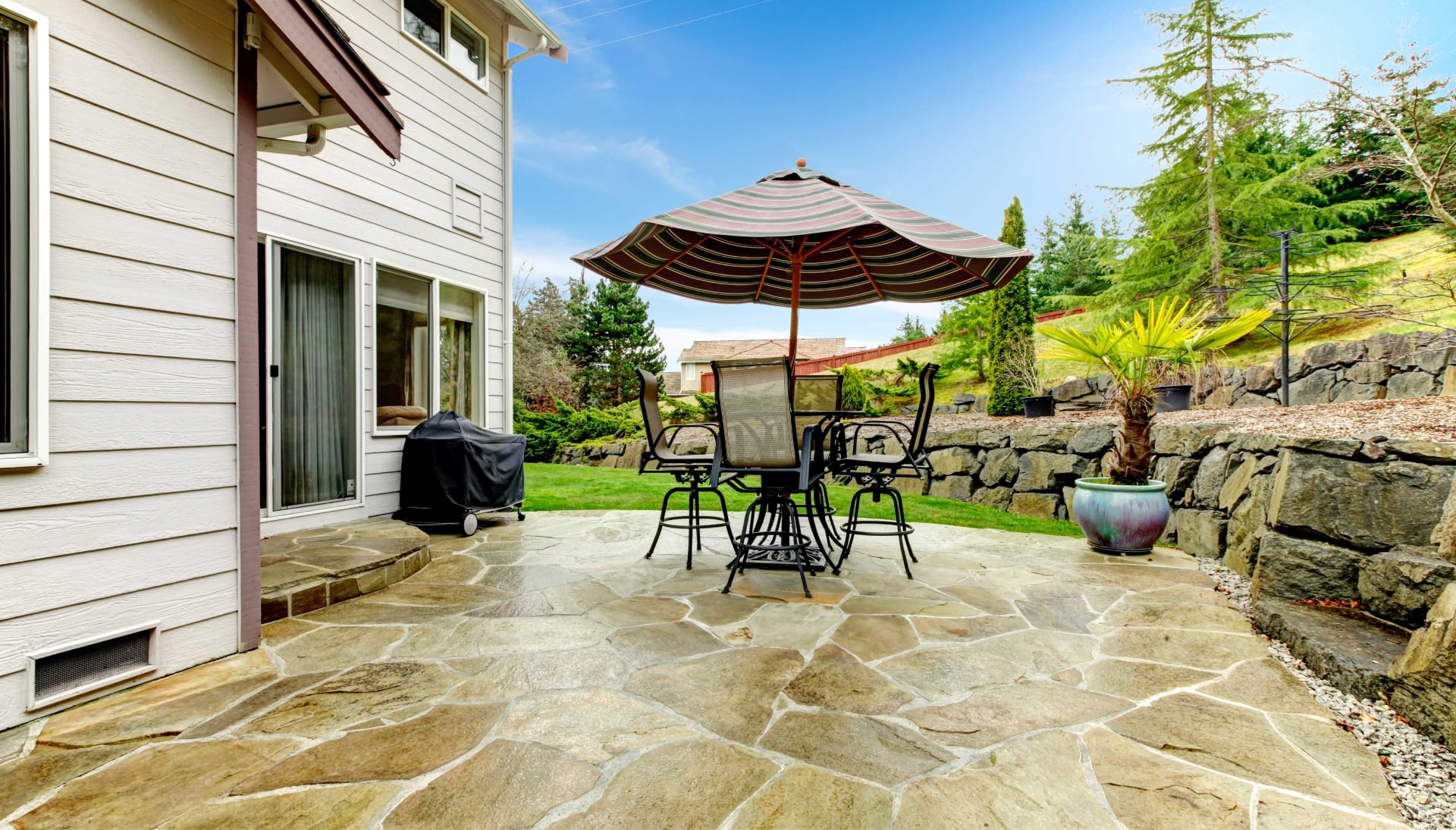
Professional Knoxville Concrete Patios
Concrete Slab Pouring: A Comprehensive Guide
Concrete slab pouring is a fundamental aspect of construction, providing a durable and level foundation for various structures. Whether you’re building a new home, adding a patio, or constructing a commercial building, understanding the process of concrete slab pouring is essential for ensuring the longevity and stability of your project.
Planning and Preparation
Before commencing any concrete slab pouring project, meticulous planning and preparation are crucial. This stage involves several key steps:
- Site Assessment: Evaluate the soil conditions and ensure proper drainage to prevent future issues like cracking or settling.
- Permits and Regulations: Check local building codes and obtain any necessary permits to avoid legal complications.
- Design and Layout: Determine the dimensions and thickness of the slab based on the intended use and load requirements.
- Material Calculation: Accurately calculate the amount of concrete, reinforcement materials (like rebar or wire mesh), and other supplies needed to prevent shortages or excess.
The Concrete Slab Pouring Process
Once the planning phase is complete, the actual pouring process can begin. This involves several critical steps that must be executed with precision:
- Excavation and Grading: Remove topsoil and vegetation, then level and compact the ground to create a stable base.
- Formwork Construction: Build a sturdy framework using wooden or metal forms to contain the wet concrete and define the slab’s shape.
- Base Preparation: Add a layer of gravel or crushed stone to improve drainage and provide a solid foundation. Compact this layer thoroughly.
- Reinforcement Installation: Place rebar or wire mesh within the forms to add strength and prevent cracking. Ensure proper spacing and secure connections.
- Concrete Pouring: Carefully pour the concrete into the forms, ensuring even distribution and avoiding air pockets. Use a vibrator to consolidate the concrete and eliminate voids.
- Leveling and Screeding: Use a screed board to level the surface of the concrete and remove excess material. This ensures a smooth and even finish.
- Floating: After screeding, use a float to further smooth the surface and embed any remaining aggregate.
- Edging and Jointing: Create rounded edges with an edger and cut control joints to minimize cracking caused by expansion and contraction.
- Curing: Keep the concrete moist for at least 3-7 days by covering it with plastic sheeting, spraying it with water, or using a curing compound. This allows the concrete to hydrate properly and achieve its maximum strength.
Factors Affecting Concrete Slab Quality
Several factors can influence the final quality of a concrete slab. Paying attention to these details is crucial for ensuring a durable and long-lasting result:
- Concrete Mix Design: Use the correct mix of cement, aggregates, and water for the specific application. Consult with a concrete supplier to determine the optimal mix design.
- Weather Conditions: Avoid pouring concrete in extreme temperatures (too hot or too cold) or during heavy rain. These conditions can negatively affect the curing process and compromise the concrete’s strength.
- Proper Compaction: Ensure the concrete is properly compacted to eliminate air pockets and create a dense, uniform slab.
- Adequate Curing: Curing is essential for the concrete to gain its full strength and durability. Insufficient curing can lead to cracking, scaling, and other issues.
Concrete Slab Pouring: Advanced Techniques
For larger or more complex projects, specialized techniques may be required. These can include:
- Heated Slabs: Incorporating radiant heating systems within the concrete slab for energy-efficient heating.
- Post-Tensioned Slabs: Using tensioned cables within the slab to increase its strength and allow for longer spans.
- Decorative Concrete: Adding color, texture, or patterns to the concrete surface for aesthetic appeal.
Ensuring Success with Concrete Slab Pouring
Mastering concrete slab pouring requires a blend of knowledge, skill, and attention to detail. From the initial planning stages to the final curing process, each step plays a critical role in determining the overall quality and longevity of the slab. By adhering to best practices and staying informed about the latest techniques, you can ensure that your concrete slab provides a solid foundation for years to come.
The Importance of Concrete Protection
Concrete is a fundamental building material used across countless construction projects, from towering skyscrapers to simple sidewalks. Its strength and durability are well-known, but concrete isn’t invincible. Without proper concrete protection, it can deteriorate over time, leading to costly repairs or even structural failure. Understanding the threats concrete faces and implementing effective protection strategies is crucial for ensuring the longevity and safety of any concrete structure.
What Threatens Concrete?
Several factors can compromise the integrity of concrete. These include:
- Water: Water penetration can lead to freeze-thaw damage in cold climates, where water expands upon freezing, cracking the concrete. It also facilitates the ingress of harmful chemicals.
- Chemicals: Exposure to acids, sulfates, and chlorides can corrode concrete. This is particularly prevalent in industrial settings and coastal environments.
- Abrasion: Constant wear and tear from traffic, equipment, or even foot traffic can gradually erode the concrete surface.
- Impact: Sudden impacts can cause cracking and spalling, weakening the structure.
- Temperature Fluctuations: Repeated expansion and contraction due to temperature changes can create stress within the concrete, leading to cracking.
Strategies for Concrete Protection
Fortunately, there are several effective ways to protect concrete from these threats:
- Sealing: Applying a sealant creates a barrier that prevents water and chemicals from penetrating the concrete. Various types of sealants are available, each offering different levels of protection and durability.
- Coatings: Protective coatings, such as epoxy or polyurethane, can provide a robust layer of protection against abrasion, chemicals, and impact. These are often used in industrial settings or high-traffic areas.
- Proper Drainage: Ensuring adequate drainage around concrete structures prevents water from pooling and penetrating the concrete. This includes proper grading and the installation of drainage systems.
- Reinforcement: Using steel reinforcement within the concrete provides added strength and resistance to cracking. The type and amount of reinforcement should be carefully designed based on the specific application and environmental conditions.
- Using High-Quality Concrete Mixes: The composition of the concrete mix itself plays a crucial role in its durability. Using high-quality materials and proper mixing techniques can significantly improve concrete’s resistance to deterioration.
The Benefits of Proactive Concrete Protection
Investing in concrete protection is a smart decision that offers numerous long-term benefits:
- Extended Lifespan: Protecting concrete from damage significantly extends its lifespan, reducing the need for costly repairs or replacements.
- Reduced Maintenance Costs: By preventing deterioration, concrete protection minimizes the need for ongoing maintenance and repairs.
- Enhanced Safety: Protecting concrete structures from weakening ensures their structural integrity and enhances safety for users.
- Improved Aesthetics: Protecting concrete from staining and damage maintains its appearance and enhances the overall aesthetics of the structure.
- Increased Property Value: Well-maintained concrete structures contribute to the overall value of a property.
In conclusion, concrete protection is not just an expense; it’s an investment in the long-term durability, safety, and value of any concrete structure. By understanding the threats concrete faces and implementing appropriate protection strategies, you can ensure that your concrete structures stand the test of time.
Concrete driveway and foundation services for your Knoxville property
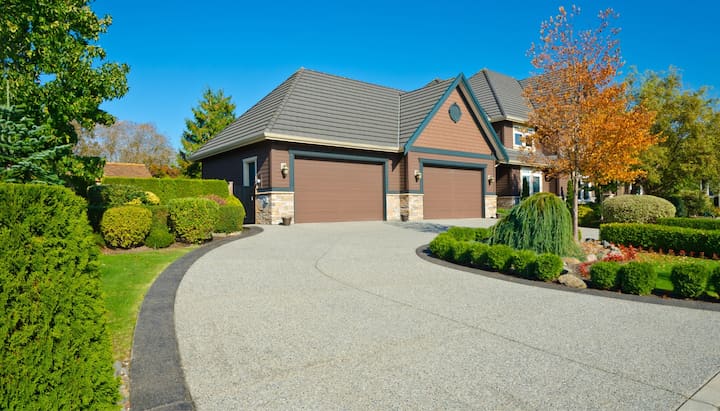
Durable and Beautiful Concrete Solutions for Your Home
Concrete provides a solid foundation for a variety of residential projects. From driveways to patios, selecting the right concrete services enhances both the functionality and aesthetic appeal of your property. Understanding the options available ensures a lasting and visually pleasing result.
Why Choose Concrete for Your Home?
Concrete is valued for its strength and longevity. When properly installed, it withstands weather extremes and heavy use, making it an ideal material for high-traffic areas. Furthermore, concrete’s versatility allows for various design options, complementing any home style.
Residential Concrete Services We Offer
Our comprehensive Residential Concrete Services cover a wide range of needs:
- Driveways: Offering durability and curb appeal, a concrete driveway is a long-term investment.
- Patios: Extend your outdoor living space with a custom-designed concrete patio, perfect for entertaining or relaxing.
- Walkways: Create safe and attractive pathways around your home with expertly installed concrete walkways.
- Foundations: Providing a stable base for your home, our concrete foundations are built to last.
- Decorative Concrete: Enhance your outdoor areas with stamped, stained, or colored concrete, adding a unique touch to your landscape.
The Concrete Installation Process
Our process begins with a thorough site assessment and careful planning to ensure proper drainage and stability. We use high-quality materials and follow industry best practices for mixing, pouring, and curing the concrete. Our experienced team pays close attention to detail, ensuring a smooth and even finish that meets your expectations.
Maintaining Your Concrete Surfaces
To prolong the life of your concrete surfaces, regular maintenance is essential. This includes sealing the concrete to protect it from moisture and stains, as well as prompt repairs of any cracks or damage. With proper care, your concrete installations will remain beautiful and functional for years to come.
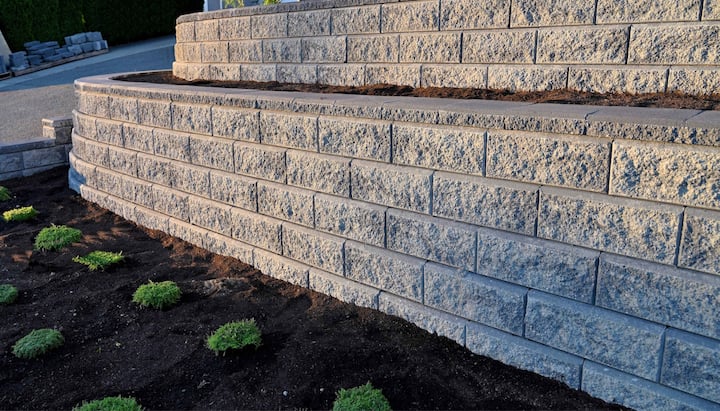
Durable Concrete Solutions for Your Business
Selecting the right concrete services is essential for the success and longevity of any commercial project. High-quality concrete work ensures structural integrity, safety, and aesthetic appeal. Whether you’re laying a foundation, constructing a parking lot, or designing a decorative feature, the concrete must be expertly mixed, poured, and finished to withstand the test of time.
Investing in reliable concrete services means minimizing future repairs and maximizing the value of your property. Poorly executed concrete work can lead to cracks, settling, and other structural issues that require costly remediation. Choosing a provider with a proven track record of excellence guarantees that your project is built on a solid foundation.
What sets us apart is our unwavering commitment to quality and customer satisfaction. We understand that every project is unique, and we tailor our approach to meet your specific needs and requirements. Our team of experienced professionals uses the latest techniques and equipment to deliver superior results that exceed expectations. When you partner with us, you can rest assured that your concrete project is in capable hands.
Our comprehensive range of commercial concrete solutions includes:
- Foundations: Providing a stable base for buildings of all sizes.
- Slabs: Creating smooth and durable surfaces for various applications.
- Parking Lots: Designing and constructing parking areas that can withstand heavy traffic.
- Decorative Concrete: Enhancing the aesthetic appeal of your property with stamped, stained, or polished concrete.
We pride ourselves on our attention to detail, professionalism, and commitment to delivering projects on time and within budget. Our goal is to build lasting relationships with our clients by providing exceptional service and unparalleled value. Contact us today to learn more about our commercial concrete solutions and how we can help you achieve your project goals.
Concrete Solutions for Durable Surfaces
When considering construction or renovation, the choice of materials is crucial. Concrete offers a blend of strength, longevity, and versatility that makes it a superior option for a variety of applications. From foundational structures to aesthetic finishes, understanding the properties and uses of concrete can significantly enhance the quality and lifespan of your projects.
The Advantages of Concrete
Concrete is not just another building material; it’s an investment in durability. Its inherent strength withstands extreme weather conditions, resists fire, and provides a stable base for any structure. Here’s a closer look at its key benefits:
- Durability: Concrete structures can last for decades, often requiring minimal maintenance.
- Versatility: It can be molded into nearly any shape, making it suitable for diverse design requirements.
- Cost-Effectiveness: The lifespan and low maintenance needs of concrete offer long-term savings.
- Sustainability: Concrete can be made with recycled materials, reducing environmental impact.
Sidewalk Concrete Repair: Maintaining Safety and Aesthetics
Sidewalks are subject to constant wear and tear, leading to cracks, uneven surfaces, and potential hazards. Timely sidewalk concrete repair is essential to maintain public safety and the aesthetic appeal of your property. Addressing these issues promptly can prevent accidents and more extensive damage.
Effective sidewalk concrete repair involves:
- Assessment: Identifying the extent and cause of the damage.
- Preparation: Cleaning and preparing the affected area for repair.
- Repair: Applying appropriate concrete mixes or repair compounds.
- Finishing: Ensuring a smooth, level surface that blends with the existing sidewalk.
Applications of Concrete
The adaptability of concrete allows it to be used in numerous construction scenarios. Here are some common applications:
- Foundations: Providing a stable base for buildings.
- Driveways and Patios: Creating durable and attractive outdoor surfaces.
- Walls and Retaining Structures: Offering strength and stability in construction.
- Decorative Concrete: Enhancing aesthetic appeal through various finishes and designs.
Ensuring Quality in Concrete Work
Achieving the full benefits of concrete requires skilled craftsmanship and adherence to best practices. Proper mixing, pouring, and curing techniques are essential to ensure the strength and longevity of the concrete. Whether it’s a small sidewalk concrete repair or a large-scale construction project, attention to detail is paramount.
When considering concrete for your next project, remember that its durability, versatility, and cost-effectiveness make it a wise choice. Regular maintenance, including timely sidewalk concrete repair, will help ensure that your concrete surfaces remain safe, functional, and visually appealing for years to come.
Concrete Resurfacing: Enhance and Protect Your Surfaces
Concrete is a durable and versatile material, but it’s not immune to wear and tear. Over time, concrete surfaces can crack, chip, stain, and fade. Concrete resurfacing offers a cost-effective way to restore and enhance existing concrete, avoiding the expense and disruption of complete replacement.
Why Choose Concrete Resurfacing?
- Cost Savings: Resurfacing is significantly cheaper than replacing concrete.
- Enhanced Appearance: Transform dull, damaged concrete into beautiful, vibrant surfaces.
- Increased Durability: Resurfacing protects concrete from further damage and extends its lifespan.
- Versatile Design Options: Choose from various colors, textures, and patterns to match your aesthetic.
- Minimal Disruption: Resurfacing is typically faster and less disruptive than replacement.
Our Concrete Resurfacing Services
We specialize in a range of concrete resurfacing techniques to address various needs and preferences. Our experienced team will assess your concrete surfaces and recommend the best solution for your specific situation.
Epoxy Coatings
Epoxy coatings provide a durable, seamless, and chemical-resistant finish. They are ideal for garages, workshops, and industrial floors.
Acrylic Coatings
Acrylic coatings offer excellent UV resistance and are suitable for outdoor surfaces like patios, driveways, and pool decks.
Stamped Overlays
Stamped overlays create decorative patterns and textures, mimicking the look of brick, stone, or tile.
Spray Textures
Spray textures provide slip resistance and visual appeal, perfect for pool decks and walkways.
The Concrete Resurfacing Process
- Surface Preparation: Thorough cleaning and preparation of the existing concrete surface.
- Crack and Repair: Addressing any cracks or damage with appropriate repair materials.
- Application of Resurfacing Material: Applying the chosen resurfacing material according to manufacturer instructions.
- Sealing and Finishing: Sealing the surface to protect it from the elements and enhance its appearance.
For surfaces that have seen better days, trust our Concrete Resurfacing Experts to bring them back to life. Our commitment is to improve the appearance and increase the lifespan of your surfaces while adhering to the highest quality and durability standards.
Our team utilizes cutting-edge techniques and high-grade materials to deliver exceptional results that stand the test of time. Whether you’re looking to revitalize your residential driveway, transform your commercial flooring, or enhance your outdoor living space, we have the expertise to exceed your expectations.
Our meticulous approach to Concrete Resurfacing Experts projects starts with a thorough inspection of the existing concrete, followed by a detailed plan tailored to your specific needs. By identifying potential issues and proactively addressing them, we ensure a seamless and long-lasting restoration. We work with a variety of materials, including durable epoxy coatings, flexible acrylic coatings, and decorative stamped overlays, to achieve the desired look and functionality for your space.
Did we miss anything?
Durable Concrete Retaining Walls for Your Property
Concrete retaining walls are essential for managing soil and creating usable space on properties with slopes or uneven terrain. They provide structural support, prevent erosion, and can enhance the aesthetic appeal of your landscape. Choosing the right type of concrete retaining wall and ensuring proper installation are crucial for its long-term performance and stability.
Benefits of Concrete Retaining Walls
- Erosion Control: Concrete retaining walls effectively prevent soil erosion caused by rainfall, wind, and other environmental factors. They hold back the soil, protecting your property and surrounding areas.
- Structural Support: These walls provide critical structural support to prevent landslides and stabilize slopes, ensuring the safety and integrity of your land and any structures built upon it.
- Usable Space: By terracing sloped areas, concrete retaining walls create flat, usable spaces for gardens, patios, walkways, or even additional parking. This maximizes the potential of your property.
- Aesthetic Enhancement: Concrete retaining walls can be designed to complement your landscape, adding visual interest and increasing property value. They can be customized with various textures, colors, and finishes.
- Durability and Longevity: Concrete is a highly durable material that can withstand harsh weather conditions, heavy loads, and soil pressure. A well-constructed concrete retaining wall can last for decades with minimal maintenance.
Types of Concrete Retaining Walls
Several types of concrete retaining walls are available, each suited for different applications and site conditions:
- Gravity Walls: These walls rely on their own weight to resist soil pressure. They are typically used for lower walls (under 4 feet) and require a wide base for stability.
- Cantilever Walls: Cantilever walls consist of a vertical wall and a horizontal base, forming an “L” shape. The base extends beneath the soil, using the weight of the backfill to provide additional support. These are suitable for taller walls.
- Sheet Pile Walls: Sheet pile walls are constructed by driving interlocking steel or concrete sheets into the ground. They are often used for temporary support during excavation or for waterfront applications.
- Anchored Walls: Anchored walls use cables or rods to tie the wall to the soil behind it, providing extra stability for very tall or heavily loaded walls.
- Reinforced Concrete Walls: These walls incorporate steel reinforcement within the concrete to increase their strength and resistance to cracking. They are suitable for a wide range of applications and wall heights.
Factors to Consider When Choosing a Concrete Retaining Wall
Selecting the appropriate type of concrete retaining wall involves considering several factors:
- Wall Height: The height of the wall is a primary factor in determining the type of wall required. Taller walls generally require more robust designs, such as cantilever or anchored walls.
- Soil Conditions: The type of soil behind the wall, its moisture content, and its load-bearing capacity will influence the design and construction methods. A geotechnical investigation is often necessary.
- Site Drainage: Proper drainage is crucial to prevent hydrostatic pressure from building up behind the wall, which can cause it to fail. Incorporating drainage systems, such as weep holes and drainage aggregate, is essential.
- Local Building Codes: Ensure that your concrete retaining wall design complies with all local building codes and regulations. Permits may be required before construction can begin.
- Aesthetics: Consider the aesthetic appearance of the wall and how it will integrate with the surrounding landscape. Choose a finish, color, and texture that complements your property.
Installation of Concrete Retaining Walls
Proper installation is critical to the performance and longevity of a concrete retaining wall:
- Excavation: Excavate the area behind the wall to the required depth and width, ensuring a stable foundation.
- Foundation Preparation: Prepare the foundation by compacting the soil and placing a layer of gravel or crushed stone for drainage.
- Wall Construction: Construct the wall according to the design specifications, using appropriate concrete mix and reinforcement (if required). Ensure proper alignment and leveling.
- Backfilling: Backfill behind the wall with well-draining material, such as gravel or crushed stone, in layers. Compact each layer to prevent settling.
- Drainage Installation: Install drainage systems, such as weep holes and drainage pipes, to prevent water buildup behind the wall.
- Finishing: Apply any desired finishes or coatings to the wall to enhance its appearance and protect it from the elements.
Maintaining Your Concrete Retaining Wall
While concrete retaining walls are durable, some maintenance is necessary to ensure their long-term performance:
- Inspect Regularly: Inspect the wall regularly for cracks, leaks, or other signs of damage. Address any issues promptly to prevent further deterioration.
- Clean the Wall: Clean the wall periodically to remove dirt, debris, and stains. Use a mild detergent and a brush to scrub the surface.
- Maintain Drainage: Ensure that drainage systems are functioning properly. Clear any obstructions from weep holes and drainage pipes.
- Repair Cracks: Repair any cracks that develop in the wall. Small cracks can be filled with concrete patching compound, while larger cracks may require professional repair.
Investing in quality concrete retaining walls is a wise decision to protect and enhance your property. By understanding the different types of walls, factors to consider, and installation procedures, you can ensure that your retaining wall provides long-lasting support and aesthetic appeal.
